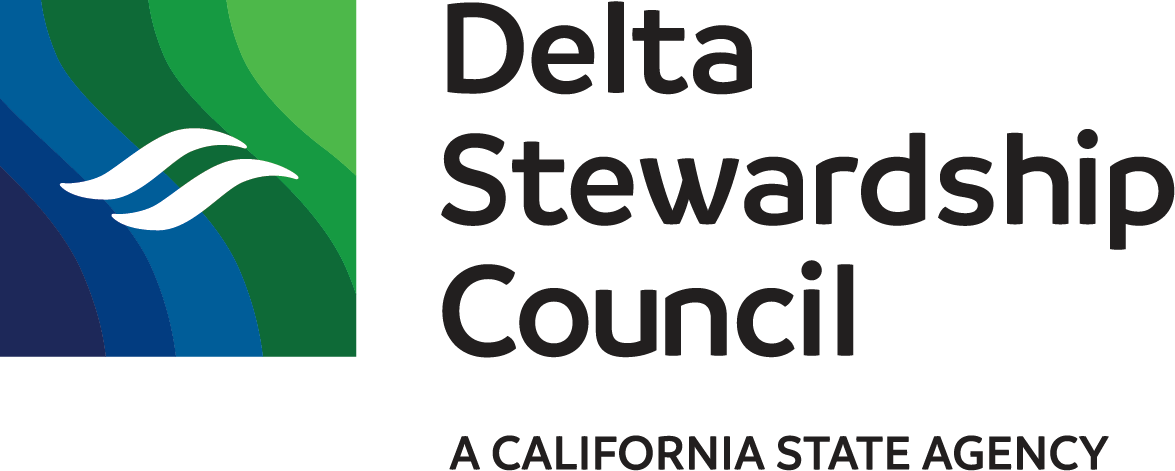11th Biennial Bay-Delta Science Conference
About the Conference
- Dates: April 6-9, 2021 (past)
- Location: Virtual
- Schedule: At-a-Glance Program

The biennial Bay-Delta Science Conference is jointly sponsored by the Delta Stewardship Council (Council) and U.S. Geological Survey (USGS) as a forum for presenting scientific analyses and results relevant to management of the San Francisco Bay and Sacramento-San Joaquin Delta. The goal of the conference is to provide new information and syntheses to the broad community of scientists, engineers, resource managers, and stakeholders working on Bay-Delta issues.
The 2021 conference program featured a range of topics relevant to the Bay-Delta science, management and decision-making community with the theme of “Building Resilience through Diversity in Science.”
2021 Student Presentation Competition
The top student talks and posters are recognized through the conference’s Student Presentation Competition. Judges evaluate presentations on organization, clarity, visual aesthetic, delivery, and scientific content.
Congratulations to the winners of the 2021 Bay-Delta Science Conference Student Presentation Competition!
Oral Presentation Awards
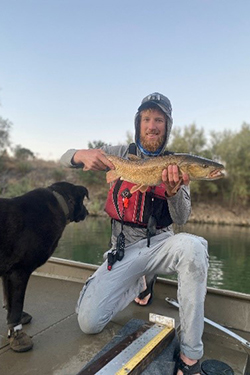
First Place: Dylan K. Stompe
“A Spatially Explicit History of Estuary Fish Species”
Dylan is a PhD candidate in the Durand Lab at the UC Davis Center for Watershed Sciences studying the distribution, abundance, and life history of Pacific Coast Striped bass populations. Dylan’s talk focused on the historical trends of fish distribution and abundance in the San Francisco Estuary.
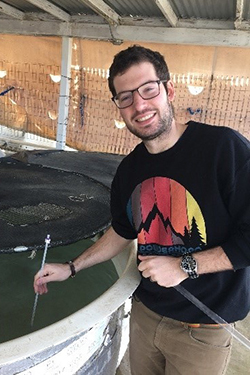
Second Place: Kenneth W. Zillig
“Physiological Variation in Thermal Traits Among Eight Populations of Chinook Salmon from the West Coast”
Kenneth is a PhD student in the Fangue Lab at UC Davis, where he researches the thermal physiology of Chinook salmon to develop strategies that link physiological traits to ecological traits in order to inform salmonid management. He spoke about how thermal physiology and performance vary among Chinook salmon populations.
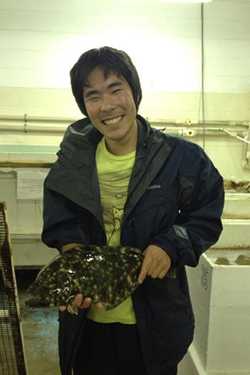
Third Place: Yuzo Yanagitsuru
“Improving the Longfin Smelt Larviculture Protocol: Responses of the Early Life Stages of Longfin Smelt to Temperature, Salinity, and Turbidity”
Yuzo is a PhD Candidate in the Animal Biology Graduate Group at UC Davis, with a research concentration on ecological physiology with application to conservation aquaculture. Yuzo’s talk focused on the development of methods to culture Longfin smelt in captivity.
Poster Presentation Awards
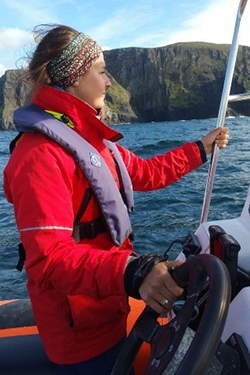
First Place: Alexandra McInturf
“The effect of temperature on trophic interactions between largemouth bass and juvenile Chinook salmon in the Sacramento-San Joaquin River Delta System”
Alexandra is a PhD candidate in the Fangue Lab at UC Davis, Fish and Conservation Biology Department, and a Delta Science Fellow. She studies how environmental variables (such as temperature) affect physiology, behavior and distribution of threatened marine and aquatic fish. Her poster explored how temperature affects the likelihood that juvenile salmon are eaten in the Delta.
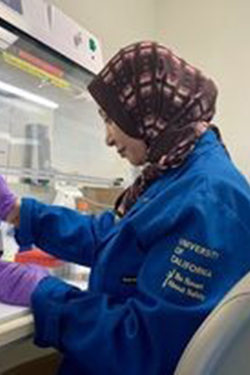
Second Place: Samah Abdelrazek
“Effect of temperature and Flavobacterium columnare on juvenile Chinook salmon (Oncorhynchus tshawytscha) exploratory and locomotor behavior”
Samah is a PhD student in the Graduate Group in Integrative Pathobiology at UC Davis. Samah’s research in the Connon Laboratory focuses on understanding the host-pathogen interactions, and transcriptional changes in immune, stress, and brain injury genes of Chinook salmon affected by the bacterium Flavobacterium columnare.
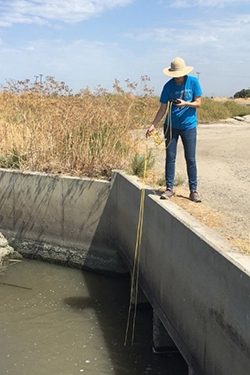
Third Place: Stefanie Helmrich
“Improvement of WARMF model to simulate wetland processes leading to increased salinity”
Stefanie is a PhD candidate in the Environmental Systems Graduate Group at UC Merced, where her research focuses on developing simulation models to improve understanding and management of inorganic water quality contaminants. She is currently involved in a project funded by the Delta Science Program that aims to integrate the science and management of nutrients, salt, and mercury export from San Joaquin River wetland tributaries to the Delta.
The Brown-Nichols Science Award
The Brown-Nichols Science Award was established in 2008 in honor of the significant contributions of Dr. Randall Brown and Dr. Frederic Nichols. Each made substantive contributions to science through research, by facilitating good science by others, and by communicating science to managers and policy makers in the San Francisco Estuary and watershed. Together, they laid the foundations for the first Bay-Delta Science Conference. The award is given to recognize the contributions of a scientist for significant research and active involvement in facilitating the use of science to manage the San Francisco Estuary and watershed.
Most recently, the award was presented posthumously to Dr. Larry R. Brown. More information is available on the Brown-Nichols Science Award web page.
Other recent awardees include:
- Dr. Ted Sommer from the California Department of Water Resources (2018),
- Dr. Jeffrey Mount from the Public Policy Institute of California’s Water Policy Center (2016), and
- Dr. Anke Mueller-Solger from the Interagency Ecological Program (2014).

